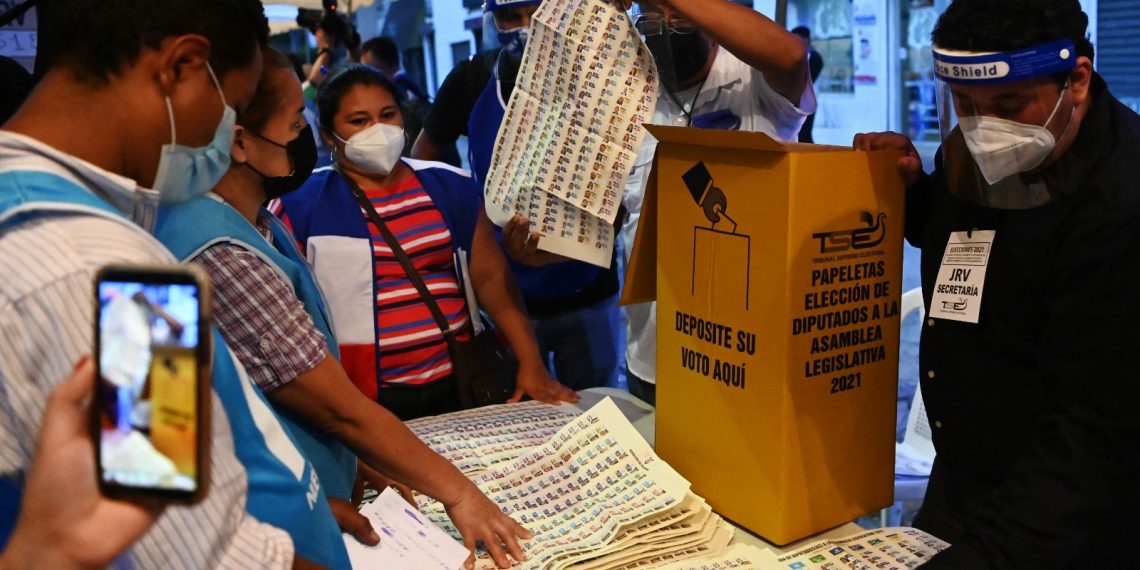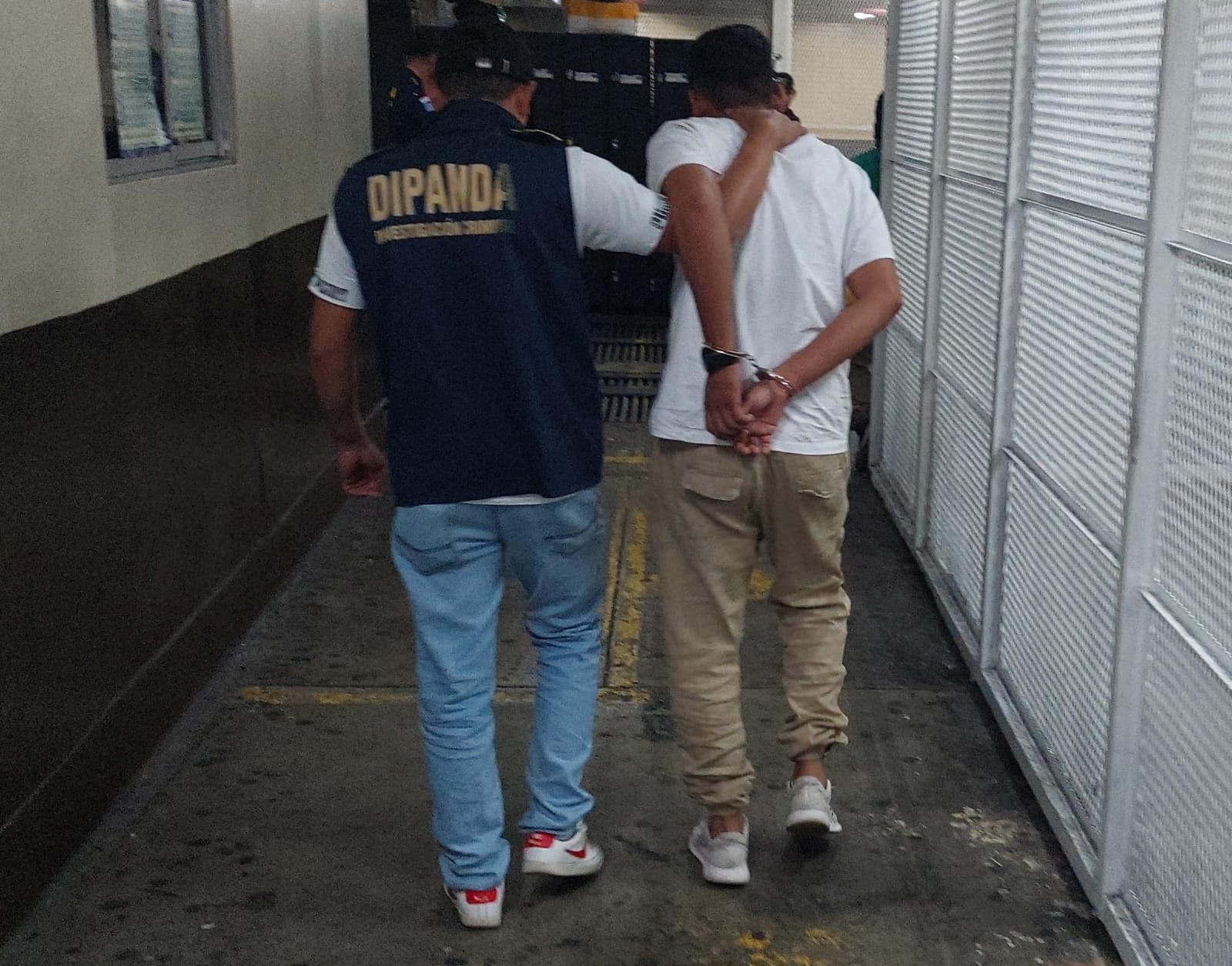Central America
Analysts predict opposition defeat in 2024 elections in El Salvador

October 5 |
The low voting intention and preference, according to several polls, that the population maintains towards the traditional political parties for next year’s elections “is irreversible”, therefore, the electoral triumph of Nayib Bukele at the polls is imminent, according to analysts and sociologists René Martínez and Mauricio Rodríguez.
Both agree that it will be difficult for the traditional parties (ARENA and FMLN) to attract more voters, due to the discontent of Salvadorans for the bad management of their municipal and presidential administrations.
Data from the last opinion poll of the Universidad Francisco Gavidia (UFG) indicated that the tricolor presidential ticket [Joel Sánchez and Hilcia Bonilla] has a voting intention of 4.3 %; and the farabundista candidates [Manuel Flores and Wérner Marroquín] of 2.8 %.
In view of this scenario, in the middle of the beginning of the legal term for the presidential electoral campaign, Martínez and Rodríguez warned that the opposition parties could resort to the “dirty campaign”, as a mechanism to attack Nayib Bukele, candidate of Nuevas Ideas who will compete for immediate reelection, enabled based on the sentence 1-2021 of the Constitutional Chamber of the Supreme Court of Justice which reinterpreted article 152 of the Constitution of the Republic.
“On the part of the opposition candidates, who together would not even reach 10% of the popular support, what is expected is “dirty war”, false news, defamation, continuous calls to return to the past of corruption and impunity and, above all, promises to remove the regime of exception and release terrorist criminals”, considered Martinez.
The presidential elections are scheduled for February 4, 2024, according to the calendar of the Supreme Electoral Tribunal (TSE). In these elections, in addition to citizens residing in El Salvador, the diaspora will also be able to vote by means of electronic voting via Internet and electronic voting in person, according to the provisions of the Special Law for the Exercise of Suffrage Abroad, approved by the Legislative Assembly last year.
Unlike the opposition, analysts valued, Nayib Bukele maintains the leadership in voting intentions and citizen preference, results that will be ratified at the polls, by virtue of his work in favor of Salvadorans, highlighting security with the fight against gangs.
The same UFG survey that projected the unfavorable scenario for the opposition established that the presidential formula of Nuevas Ideas [Nayib Bukele and Félix Ulloa] have a voting intention of 68. 4%, which increases to 87% only with valid votes.
“Re-election is imminent. I believe that if the first presidential term [of Nayib Bukele] was to settle public security, the second term is to empower the country’s economic sectors,” said Rodríguez.
Central America
Guatemala President Says Starlink Terminal Found Inside Prison

Guatemalan President Bernardo Arévalo revealed on Tuesday that a Starlink terminal was discovered inside a prison in the country, highlighting corruption and the illegal introduction of advanced communication technology into the penitentiary system.
Arévalo did not specify which prison the device was found in but stressed that Starlink’s ability to connect directly to low-orbit satellites makes it particularly difficult to disrupt, posing a serious security risk.
The disclosure was made during a press conference attended by Interior Minister Marco Antonio Villeda and Defense Minister Henry Sáenz.
On January 6, specialized units of Guatemala’s National Civil Police (PNC), members of the Army and prison security personnel carried out Operation Sentinel at the Renovación 1 Maximum Security Prison for Men, located in Escuintla. According to the Interior Ministry, the operation aimed to reduce criminal activity, prevent illicit acts and stop the trafficking of prohibited items inside the prison.
During the operation, authorities also dismantled businesses operating near several prisons after detecting routers that were allegedly used to redirect internet signals into penitentiary facilities, according to local outlet Emisoras Unidas.
Tensions escalated further over the weekend of January 17 and 18, when inmates affiliated with gangs staged riots in three prisons. During the unrest, they took prison guards and a psychologist hostage, demanding extra-large beds, air conditioning, transfers to other facilities and access to the internet.
Central America
Guatemala Police Arrest Prison Guard Caught in the Act of Extortion

Guatemala’s National Civil Police (PNC) arrested a suspected extortionist in the act during an operation carried out in the department of Quiché, authorities reported.
According to the police report, the arrest took place in Zone 1 of Santa Cruz del Quiché after officers responded to a citizen complaint. Agents from Precinct 71 identified the suspect as Encarnación “N”, 41, who was serving as a guard in the Guatemalan Penitentiary System.
The suspect was caught while attempting to collect a package simulating an extortion payment totaling 25,000 quetzales. Police intervened at the precise moment the money was being handed over, allowing authorities to document the crime in flagrante delicto.
Following the operation, the detainee was placed at the disposal of the competent courts to face criminal proceedings.
The PNC emphasized that such operations aim to dismantle criminal structures involved in extortion, regardless of whether those implicated are linked to state institutions, and urged the public to continue reporting these crimes through confidential channels.
Central America
Honduras swears in conservative president Asfura after disputed election

Conservative politician Nasry Asfura assumed the presidency of Honduras on Tuesday with an agenda closely aligned with the United States, a shift that could strain the country’s relationship with China as he seeks to confront the economic and security challenges facing the poorest and most violent nation in Central America.
Asfura’s rise to power, backed by U.S. President Donald Trump, marks the end of four years of left-wing rule and secures Trump another regional ally amid the advance of conservative governments in Chile, Bolivia, Peru, and Argentina.
The 67-year-old former mayor and construction businessman was sworn in during an austere ceremony at the National Congress, following a tightly contested election marred by opposition allegations of fraud and Trump’s threat to cut U.S. aid if his preferred candidate did not prevail.
Grateful for Washington’s support, Asfura—who is of Palestinian descent—traveled to the United States to meet with Secretary of State Marco Rubio, before visiting Israeli Prime Minister Benjamin Netanyahu.
“We need to strengthen relations with our most important trading partner,” Asfura said after being declared the winner of the November 30 election by a narrow margin, following a tense vote count that lasted just over three weeks.
-

 Central America3 days ago
Central America3 days agoGuatemala seizes over a ton of cocaine hidden in flour at Pacific port
-

 International5 days ago
International5 days agoDelcy Rodríguez seeks political agreements after Maduro’s ouster
-

 International3 days ago
International3 days agoHistoric snowstorm paralyzes Toronto after 60 centimeters of snow
-

 Central America2 days ago
Central America2 days agoGuatemala Police Arrest Prison Guard Caught in the Act of Extortion
-

 Central America2 days ago
Central America2 days agoBukele leads public trust rankings as UCA survey highlights gains in security
-

 Central America2 days ago
Central America2 days agoHonduras swears in conservative president Asfura after disputed election
-

 International3 days ago
International3 days agoSpain’s irregular migrant population rises to 840,000, study finds
-

 International5 days ago
International5 days agoFederal immigration agents kill man in Minneapolis, sparking protests and outrage
-

 International1 day ago
International1 day agoFootball Fan Killed in Clashes After Colombian League Match
-

 International2 days ago
International2 days agoWinter Storm Fern Leaves 30 Dead and Over One Million Without Power Across the U.S.
-

 Central America1 day ago
Central America1 day agoGuatemala President Says Starlink Terminal Found Inside Prison
-

 Sin categoría2 days ago
Sin categoría2 days agoEight Killed in Series of Armed Attacks in Ecuador’s Manabí Province
-

 International2 days ago
International2 days agoDoomsday clock moves to 85 seconds before midnight amid rising global risks
-

 International3 days ago
International3 days agoRights group says nearly 6,000 killed in Iran protest crackdown
-

 International1 day ago
International1 day agoMissing Spanish Sailor Rescued After 11 Days Adrift in Mediterranean
-

 International1 day ago
International1 day agoRubio Says U.S. Could Participate in Follow-Up Russia-Ukraine Talks
-

 International2 days ago
International2 days agoSpain approves plan to regularize up to 500,000 migrants in Historic Shift
-

 Sin categoría2 days ago
Sin categoría2 days agoEl Salvador Launches Fourth Year of Ocean Mission to Protect Marine Ecosystems
-

 International3 days ago
International3 days agoVenezuela frees at least 80 political prisoners, NGO says
-

 International3 days ago
International3 days agoEU launches new probe into X over AI-generated fake nude images
-

 International8 hours ago
International8 hours agoU.S. Senate Rejects Budget, Bringing Government Closer to Shutdown Amid DHS Dispute
-

 International4 days ago
International4 days agoFrance debates ban on social media for children under 15
-

 International4 days ago
International4 days agoSevere winter storm grips U.S., leaves multiple dead as extreme cold persists
-

 International9 hours ago
International9 hours agoStorm Kristin Kills Five in Portugal, Leaves Nearly 500,000 Without Power
-

 International9 hours ago
International9 hours agoTrump Says Putin Agreed to One-Week Halt in Attacks on Ukraine Amid Extreme Cold
-

 International9 hours ago
International9 hours agoMan Arrested After Vehicle Crashes Into Jewish Institution in Brooklyn








































































































